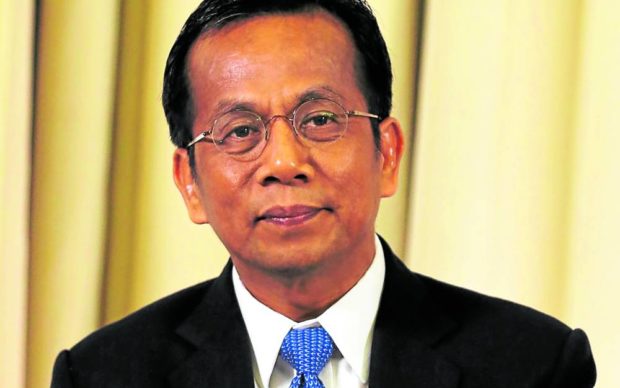Neda chief not worried about yawning trade deficit

Arsenio Balisacan
MANILA, Philippines—The country’s chief economist is not worried about the yawning goods trade deficit, which hit another monthly high in June, as long as the growth in imports supported domestic investments and infrastructure.
National Statistician Dennis Mapa on Tuesday (Aug. 9) confirmed that the June trade deficit, amounting to $5.84 billion, was the biggest monthly gap on record. Last June, imports climbed 26 percent year-on-year to $12.49 billion, while exports growth slowed to 1 percent as sales of Philippine-made goods overseas reached $6.64 billion.
The latest Philippine Statistics Authority (PSA) data showed that the first-half trade-in-goods deficit widened to $29.79 billion from $17.95 billion during the first six months of 2021. President Marcos’ economic managers had projected an 18-percent merchandise imports growth exceeding a 7-percent increase in exports this year.
The wide trade deficit had resulted in a current account deficit as the country had to shell out more dollars to pay for expensive commodity imports, especially oil and food products, as Russia’s invasion of Ukraine dragged on. In turn, the current account deficit was weakening the peso, which hit 17-year lows recently.
Despite depreciation pressures on the domestic currency wrought by the robust imports growth outpacing exports, Socioeconomic Planning Secretary Arsenio Balisacan told a press conference that the medium- to long-term impact of importation of capital goods and raw materials would augur well for sustained economic growth.
Balisacan, who heads the state planning agency National Economic and Development Authority (Neda), said he expects the Philippines’ trade deficits to further balloon and linger, especially as exports expansion usually lagged while imports were being bloated by high global prices.
The Neda chief said the construction sector, infrastructure development, and capital formation stood to benefit from a surge in imports.
“The expectation is these investments that we are putting in place [like] the improvement in transport and connectivity, and better tower facilities will improve the competitiveness of our industries, particularly our exports. And we will get the dividends from these investments,” Balisacan said.
Balisacan added that he was not worried about the trade gap’s impact spilling over to the peso as the country has many other sources of foreign exchange earnings, like cash remittances from Filipinos working and living overseas, revenue from inbound tourists, as well as foreign direct investments (FDIs) seen to increase following liberalization of many sectors under amendments to three antiquated economic laws which had been enacted by the previous Duterte administration.
